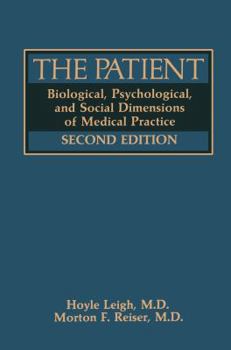The Patient: Biological, Psychological, and Social Dimensions of Medical Practice
Select Format
Select Condition 
Book Overview
The old-fashioned doctor, whose departure from the modern medical scene is so greatly lamented, was amply aware of each patient's per- sonality, family, work, and way of life. Today, we often blame a doctor's absence of that awareness on moral or ethical deficiency either in medical education or in the character of people who become physicians. An alternative explanation, however, is that doctors are just as moral, ethical, and concerned as ever before, but that a vast amount of additional new information has won the competition for attention. The data available to the old-fashioned doctor were a patient's history, phys- ical examination, and "personal profile," together with a limited number of generally ineffectual therapeutic agents. A doctor today deals with an enormous array of additional new information, which comes from X-rays, biopsies, cytology, electrographic tracings, and the phantas- magoria of contemporary laboratory tests, and the doctor must also be aware of a list of therapeutic possibilities that are both far more effective and far more extensive than ever before.
Format:Paperback
Language:English
ISBN:1468449575
ISBN13:9781468449570
Release Date:April 2012
Publisher:Springer
Length:458 Pages
Weight:1.42 lbs.
Dimensions:1.0" x 6.0" x 9.0"
Customer Reviews
1 rating
learn to be with the patients
Published by Thriftbooks.com User , 25 years ago
This is a good book for health professionals to read. To learn to be with the patients, it is necessary to read this book first to acquire the understanding of the positions the patients take, the process they go through, the ways they are--the personality types. This is my favorite book on these topics.





